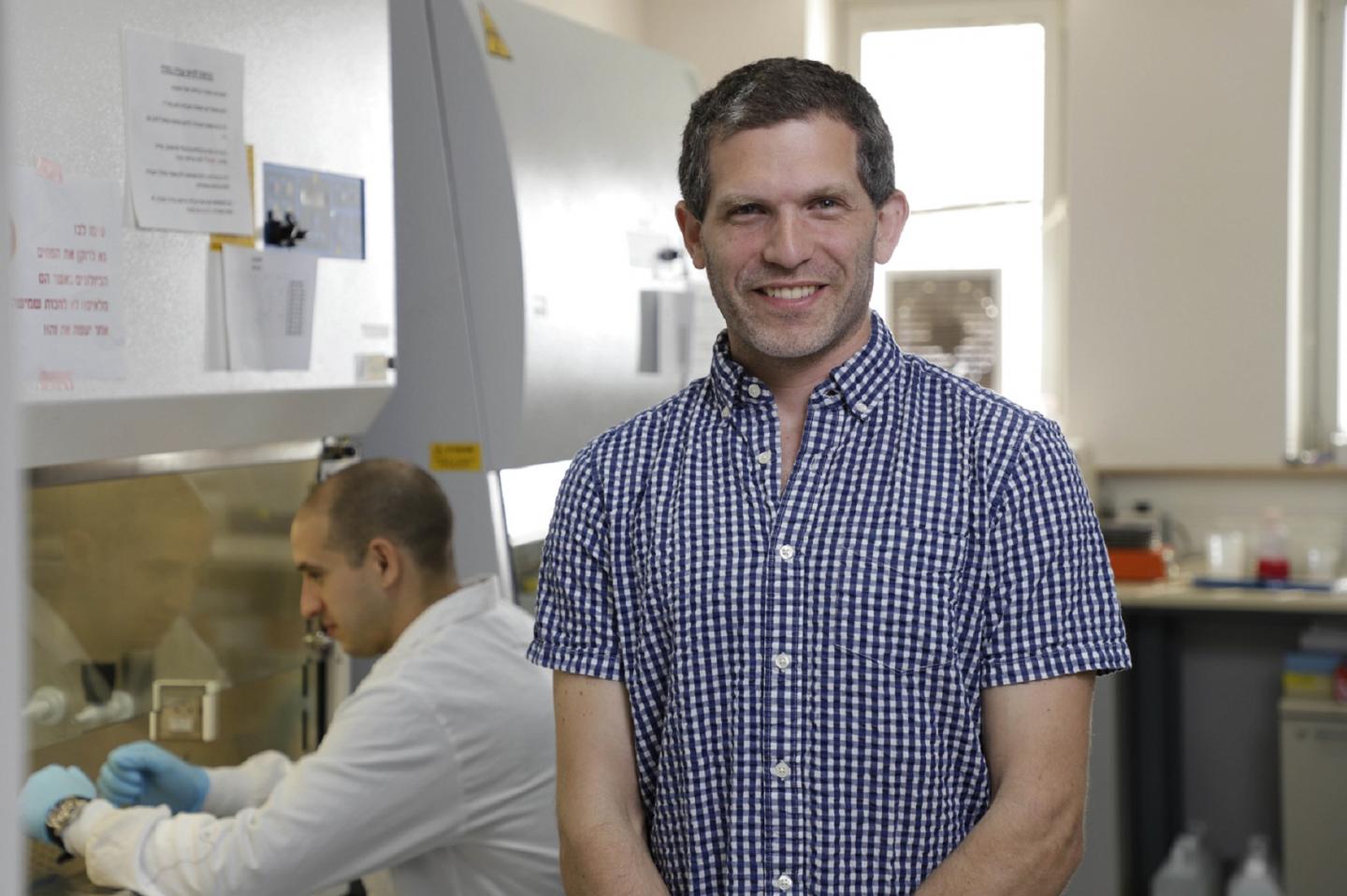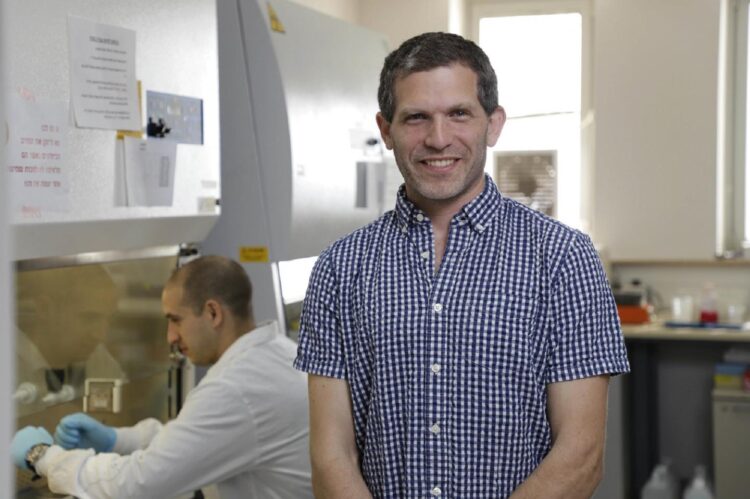Cut your finger and lost your sense of touch? There’s hope yet

Credit: Tel Aviv University
Tel Aviv University’s new and groundbreaking technology inspires hope among people who have lost their sense of touch in the nerves of a limb following amputation or injury. The technology involves a tiny sensor that is implanted in the nerve of the injured limb, for example in the finger, and is connected directly to a healthy nerve. Each time the limb touches an object, the sensor is activated and conducts an electric current to the functioning nerve, which recreates the feeling of touch. The researchers emphasize that this is a tested and safe technology that is suited to the human body and could be implanted anywhere inside of it once clinical trials will be done.
The technology was developed under the leadership of a team of experts from Tel Aviv University: Dr. Ben M. Maoz, Iftach Shlomy, Shay Divald, and Dr. Yael Leichtmann-Bardoogo from the Department of Biomedical Engineering, Fleischman Faculty of Engineering, in collaboration with Keshet Tadmor from the Sagol School of Neuroscience and Dr. Amir Arami from the Sackler School of Medicine and the Microsurgery Unit in the Department of Hand Surgery at Sheba Medical Center. The study was published in the prestigious journal ACS Nano.
The researchers say that this unique project began with a meeting between the two Tel Aviv University colleagues – biomedical engineer Dr. Maoz and surgeon Dr. Arami. “We were talking about the challenges we face in our work,” says Dr. Maoz, “and Dr. Arami shared with me the difficulty he experiences in treating people who have lost tactile sensation in one organ or another as a result of injury. It should be understood that this loss of sensation can result from a very wide range of injuries, from minor wounds – like someone chopping a salad and accidentally cutting himself with the knife – to very serious injuries. Even if the wound can be healed and the injured nerve can be sutured, in many cases the sense of touch remains damaged. We decided to tackle this challenge together, and find a solution that will restore tactile sensation to those who have lost it.”
In recent years, the field of neural prostheses has made promising developments to improve the lives of those who have lost sensation in their limbs by implanting sensors in place of the damaged nerves. But the existing technology has a number of significant drawbacks, such as complex manufacturing and use, as well as the need for an external power source, such as a battery. Now, the researchers at Tel Aviv University have used state-of-the-art technology called a triboelectric nanogenerator (TENG) to engineer and test on animal models a tiny sensor that restores tactile sensation via an electric current that comes directly from a healthy nerve and doesn’t require a complex implantation process or charging.
The researchers developed a sensor that can be implanted on a damaged nerve under the tip of the finger; the sensor connects to another nerve that functions properly and restores some of the tactile sensation to the finger. This unique development does not require an external power source such as electricity or batteries. The researchers explain that the sensor actually works on frictional force: whenever the device senses friction, it charges itself.
The device consists of two tiny plates less than half a centimeter by half a centimeter in size. When these plates come into contact with each other, they release an electric charge that is transmitted to the undamaged nerve. When the injured finger touches something, the touch releases tension corresponding to the pressure applied to the device – weak tension for a weak touch and strong tension for a strong touch – just like in a normal sense of touch.
The researchers explain that the device can be implanted anywhere in the body where tactile sensation needs to be restored, and that it actually bypasses the damaged sensory organs. Moreover, the device is made from biocompatible material that is safe for use in the human body, it does not require maintenance, the implantation is simple, and the device itself is not externally visible.
According to Dr. Maoz, after testing the new sensor in the lab (with more than half a million finger taps using the device), the researchers implanted it in the feet of the animal models. The animals walked normally, without having experienced any damage to their motor nerves, and the tests showed that the sensor allowed them to respond to sensory stimuli. “We tested our device on animal models, and the results were very encouraging,” concludes Dr. Maoz. “Next, we want to test the implant on larger models, and at a later stage implant our sensors in the fingers of people who have lost the ability to sense touch. Restoring this ability can significantly improve people’s functioning and quality of life, and more importantly, protect them from danger. People lacking tactile sensation cannot feel if their finger is being crushed, burned or frozen.”
###
Dr. Maoz’s laboratory:
https:/
Link to the article:
https:/
Media Contact
Noga Shahar
[email protected]
Related Journal Article
http://dx.





